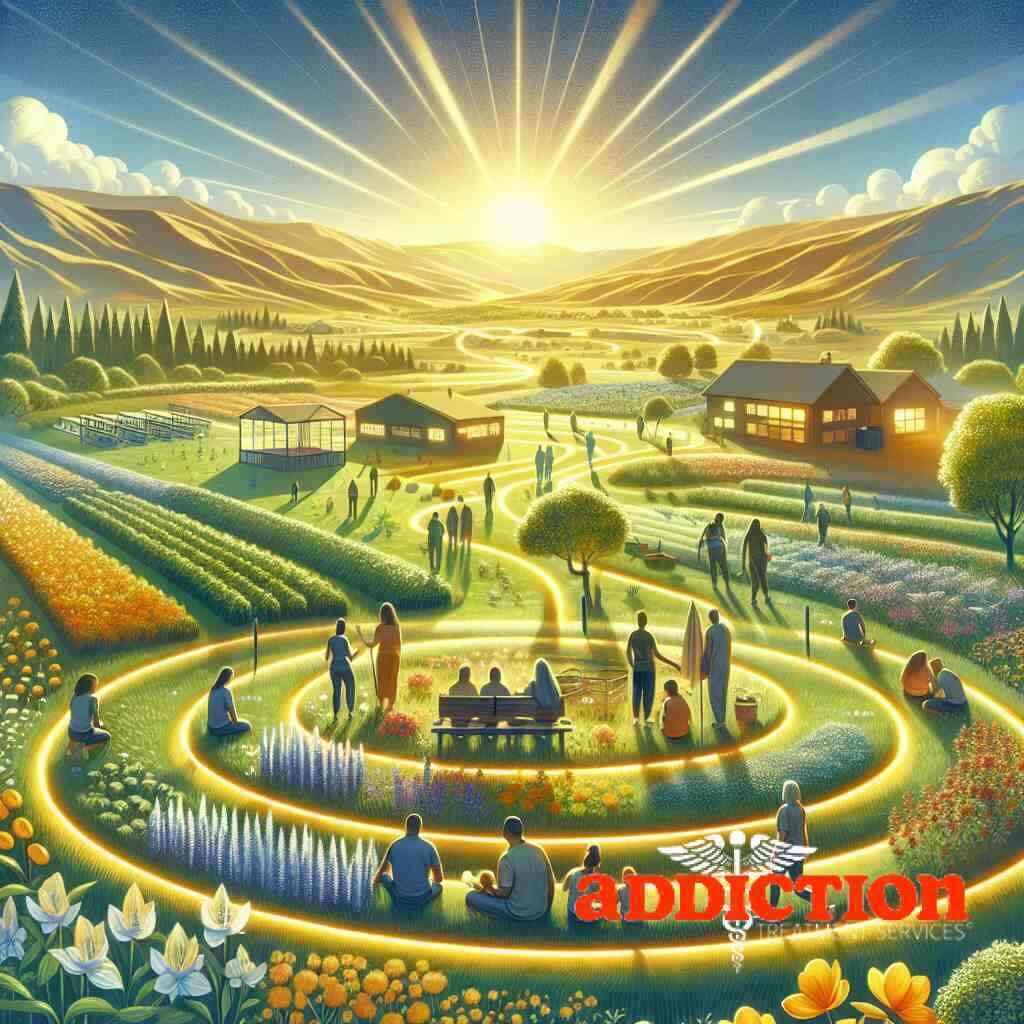 Posted On: 08/22/2025
Posted On: 08/22/2025Embarking on the Path to Successful Addiction Recovery
Understanding Addiction Treatment Services
Navigating the labyrinth of addiction recovery begins with a solid grasp of addiction treatment services. At its core, these services provide a crucial lifeline to individuals grappling with substance use disorders. They encompass a myriad of programs designed to address both the physical and psychological facets of addiction. From detox and withdrawal management to behavioral therapies, these services lay the foundation for successful addiction recovery. They guide individuals toward recovery journey milestones, helping transform lives on a profound level.
The First Step: Seeking Help
The journey to successful recovery begins with the brave decision to seek help. This first step is both challenging and transformative. Acknowledgment of the need for assistance is crucial in the roadmap of sobriety milestones. Whether it involves reaching out to addiction treatment services near you or confiding in a trusted family member, taking this step signifies the start of a groundbreaking personal journey. Through tailored support systems, individuals can embark on a path marked by sustained recovery and behavioral health transformation. This leap of faith opens doors to myriad treatment programs and recovery support services that facilitate the navigation of complex life challenges.
Building the Foundation: Choosing the Right Treatment Facility
Choosing the right treatment facility is paramount in the recovery process. This decision shapes the entire rehabilitation experience. Individuals need facilities that offer comprehensive care approaches and expertise in tackling substance misuse. From residential treatment to outpatient care, the choice of facility influences the effectiveness of the recovery program. Addiction treatment centers, such as those providing addiction treatment services in Florida, play a pivotal role in offering structured environments conducive to growth. The focus on mental health services and relapse prevention strategies ensures that individuals not only achieve sobriety but also maintain it, embarking on a journey of lasting change.
Hallmarks of a Resilient Recovery Journey
Sobriety Milestones: Gauging Progress
Understanding progress in addiction recovery requires identifying key sobriety milestones. These milestones act as crucial benchmarks that offer insights into how far individuals have come in their recovery journey. They reflect consistent abstinence from substances and an ability to maintain control over one’s choices and environment. Markers of progress include celebrating sober anniversaries, completing specific phases in treatment programs, and successfully navigating triggering situations without relapsing. Achieving these milestones reinforces self-efficacy in recovery, providing motivation and confidence.
Further, engaging in support networks like participating in AA meetings can enhance one’s ability to maintain sobriety. These gatherings offer positive affirmation and communal support, essential for gauging progress. Such environments cultivate accountability, fostering a sense of belonging and shared goals among individuals that are paramount for long-term sobriety. Regular attendance at these meetings showcases an active commitment to the recovery process and personal growth in recovery.
Relapse Prevention: Strategies for Sustained Recovery
Relapse prevention is pivotal in achieving sustained recovery. Developing effective strategies helps individuals navigate challenges without succumbing to old habits. Key strategies include identifying triggers, stress management techniques, and actively maintaining a healthy lifestyle with a consistent routine and exercise. Engaging in relapse prevention strategies further bolsters success in recovery by creating robust frameworks to prevent setbacks.
Additionally, nurturing open communication with family and friends can reinforce accountability and support. Participating in counseling or therapy, including psychotherapy’s role in recovery, offers avenues for emotional processing and learning coping mechanisms. Implementing these strategies aids individuals in building resilience against potential relapses, ensuring the journey towards long-term sobriety remains unwavering and triumphant.
The Role of Detoxification Services in Recovery Success
Detoxification services serve as a vital component in the recovery journey, laying the groundwork for eliminating substances from the body. This initial phase is essential for tackling physical dependency, providing a clean slate for further treatment. Access to advanced detox methods in Georgia exemplifies the cutting-edge approaches used to support individuals during this critical time.
Successful detoxification addresses withdrawal symptoms safely under medical supervision, ensuring physical health recovery post-substance use is manageable. Post-detox, individuals can pursue further addiction treatment services, strengthening their foundation for recovery. Through structured detox programs, individuals progress into treatment with a focus on long-term recovery goals, emphasizing both physical and mental health improvement signs. The seamless transition from detox to comprehensive recovery programs sustains the momentum necessary for a robust and resilient recovery.

Psychosocial Transformation: Beyond Sobriety
Mental Health Improvement: A Key Indicator
A pivotal element in successful addiction recovery is the holistic improvement of mental health. As individuals progress through their recovery journey, noticeable signs of mental health improvement become apparent. These include enhanced emotional stability, better stress management, and a greater sense of well-being. The integration of mental health services within addiction treatment programs ensures that both substance use disorders and co-occurring conditions are addressed effectively. By fostering an environment conducive to mental health enhancement, recovery services facilitate comprehensive healing, leading to sustained personal growth.
These transformations are critical markers in recognizing recovery success. Improved mental health serves not only as an indicator of reduced substance dependency but also underscores a deeper psychological shift. Engaging in therapy, adhering to medication-assisted treatments, and participating in support groups fortify this progress. As individuals build mental resilience, they manifest healthier lifestyle changes, reinforcing their journey toward long-term sobriety.
Emotional Resilience in Recovery: Strength Beyond Substance
Developing emotional resilience marks a significant milestone in addiction recovery, where individuals transform challenges into opportunities for growth. Emotional resilience enables individuals to endure hardship without reverting to previous substance use patterns. The cultivation of this strength begins with active participation in emotional and behavioral therapies, which provide the tools for effective emotional regulation.
In recovery, emotional resilience is reinforced through relational dynamics and community support. Regular attendance at NA meetings fosters environments that encourage sharing and collective healing. The empathy and validation found in these sober communities fortify emotional resilience, equipping individuals to face life’s adversities with renewed confidence and clarity. This vital transformation underscores the journey from recovery to a life of genuine emotional freedom.
Positive Coping Mechanisms: Handling Life’s Hurdles
Adopting positive coping mechanisms is essential for overcoming life’s challenges in recovery. These mechanisms replace maladaptive behaviors with constructive actions that support sobriety and well-being. Strategies like mindfulness, meditation, and engaging in recreational sober activities promote mental clarity and emotional stability.
Finding purpose through healthy hobbies, renewed career interests, and creative outlets epitomizes this transformation. Each positive choice strengthens neural pathways, prioritizing healthy responses to stressors. This proactive approach enhances the recovery process as it instills a sense of empowerment and self-efficacy, quintessential for successful addiction recovery. By embracing positive coping mechanisms, individuals solidify their commitment to a life of balanced well-being and continuous personal development.
Achieving Personal Growth and Development
Career Rebuilding Post-Addiction
Reinvigorating one’s career after conquering addiction presents a profound opportunity for personal growth. Addiction can disrupt professional lives, but recovery offers a chance to rebuild and refocus on career aspirations. Many individuals leverage the transformative power of sobriety to pursue new career paths or revitalize existing ones. Addiction treatment centers often provide vocational training and career counseling as part of their drug rehabilitation practices to aid this transition.
Re-entering the workforce with a renewed sense of purpose not only enhances self-esteem but also fosters independence and financial stability. The structure of a daily job can act as an anchor, promoting routine and accountability, key components of long-term sobriety. Knowing one’s skills and passions and aligning them with professional goals emboldens individuals to take confident steps forward. Thus, career rebuilding emerges as a vital element in the successful journey toward recovery.
Improved Family Relationships: Healing Together
Family dynamics play an integral role in addiction recovery as they can either hinder or promote the healing process. The role of family in addiction recovery cannot be overstated, as they offer crucial support and motivation. As individuals advance in their recovery, there’s often a concerted effort to mend strained relationships, fostering communication and trust.
Family therapy sessions become invaluable as they address underlying issues and promote a shared understanding of addiction. They pave the way for open dialogue, allowing family members to express their concerns and hopes in family support services at Addiction Treatment Services. Strengthening these bonds enhances emotional resilience, providing a network of love and support that reinforces sobriety. Together, families celebrate recovery milestones, turning individual triumphs into collective achievements and reinforcing the journey towards healing.
Physical Health Recovery Post-Substance Use: A Vital Sign
Recovery from substance use encompasses not only mental but also physical health improvements. Achieving physical health recovery post-addiction stands as a critical indicator of healing and well-being. Detoxification services aid in expelling toxins, but sustained recovery involves adopting healthier lifestyle choices, such as balanced diets, exercise, and regular medical check-ups.
Substance abuse often leaves the body depleted and damaged; therefore, physical rejuvenation signifies the body’s remarkable resilience. Improved physical health positively impacts mental health improvement signs, paving the way for holistic recovery. The interplay between mind and body in fostering a full recovery embodies the essence of addiction treatment services’ offerings, ensuring individuals are not merely surviving but thriving in their renewed lives.
Strengthening Support Systems for Long-term Sobriety
Building a Support Network in Sobriety
Cultivating a robust support network is the linchpin for achieving long-term sobriety. Engaging with supportive communities, such as sober house benefits, offers individuals a safe haven where shared experiences fuel mutual encouragement. In these environments, empathy and collective resilience flourish, fostering a unique camaraderie essential for continued recovery success. Additionally, family and friends play a critical role in this network, providing emotional scaffolding that helps individuals stay grounded and committed to their sobriety journey.
Regular participation in group meetings, whether Alcoholics Anonymous or Narcotics Anonymous, strengthens connections with peers who understand the complexities of addiction firsthand, as emphasized in the ultimate guide to enhancing recovery. Here, accountability is nurtured, and positive affirmations are exchanged, reinforcing each individual’s resolve. This network doesn’t just buffer against relapse; it serves as an ever-present reminder that recovery is a collective endeavor where triumphs are shared, and setbacks are supported with unwavering solidarity.
Accountability and Self-Awareness: Pillars of Recovery
Accountability and self-awareness serve as foundational pillars in maintaining lasting sobriety. Acknowledging the past and taking responsibility for one’s actions requires profound honesty and introspection. These self-reflective practices enable individuals to cultivate a deeper understanding of their triggers and tendencies, empowering them to make informed choices moving forward.
Building self-awareness often begins in therapy sessions, where individuals are encouraged to explore underlying emotions and behaviors. As they gain insights, this newfound awareness is harnessed to establish personal boundaries and realistic goals, crucial for sustained recovery. Accountability is reinforced when sharing these goals within a support network or in therapeutic environments, creating a cycle of responsibility and personal growth.
Moreover, setting and achieving these goals enhances self-efficacy-a critical motivational factor and a benchmark of recovery success. When individuals understand their roles in shaping their future, they adopt a proactive stance that fuels continuous self-improvement and long-term sobriety.
Engagement in Sober Activities: Anchoring Recovery Success
Participating in sober activities acts as an anchor, providing structure and enjoyment in the journey toward sobriety. Engaging in such activities introduces variety and excitement into daily routines, demonstrating that life without substances can be both fulfilling and enjoyable. Activities like yoga, art classes, and hiking build confidence and contribute to holistic well-being, playing an integral part in mental and physical health recovery.
Furthermore, these activities serve as a vehicle for building new friendships rooted in shared interests rather than substance use. They create opportunities for individuals to rediscover forgotten passions or develop new ones, thus enriching their lives beyond the specter of addiction. By investing time in these pursuits, people construct a new identity, one that thrives on positive experiences and healthy interactions, as explored in the role of sober living.
Sober activities also provide moments of reflection and self-assessment. These moments can reinforce the progress made and highlight areas for improvement. Consistent engagement magnifies the joys of sobriety, transforming the recovery journey into a vibrant tapestry of growth, resilience, and enduring success.

Culminating the Recovery Voyage
Reflections on Personal Growth and Achievement
As the journey of successful addiction recovery unfolds, it’s crucial to reflect on the personal growth and achievements attained along the way. Embracing sobriety milestones and behavioral health transformations highlights the resilience developed during recovery. Each achieved milestone in sobriety signifies a step toward a healthier, more fulfilling life. The processes involved in understanding addiction shed light on personal achievements and fortify the motivation required to stay the course.
Recognizing these accomplishments offers profound insights into the strength one has mustered to overcome the throes of addiction. Each reflection serves as a reminder of the personal fortitude that initially sparked the need for change, underscored by unique recovery stories. Celebrating these victories solidifies them as part of the individual’s new identity, one imbued with self-efficacy and hope. Engaging in self-reflection fosters confidence and builds a foundation for ongoing progress and transformation in life.
Benchmarking Success: Signs of a Flourishing Recovery
Identifying benchmarks of success in addiction recovery offers a clear framework for assessing progress. These benchmarks, such as improved mental health and robust support networks, underscore a flourishing recovery. Enhanced mental health improvement signs illuminate the journey towards emotional stability and resilience. Creating comprehensive care approaches further supports this development and enhances overall well-being.
Success in recovery materializes through reduced signs of withdrawal and the integration of positive lifestyle changes. Establishing sustainable routines and participating in meaningful sober activities demonstrate thriving recovery. Such benchmarks provide individuals with practical indicators of success, encouraging growth and continuity. As these signs of improvement manifest, they bolster the individual’s resolve to embrace life with renewed vigor and purpose.
The Journey Continues: Sustaining Sobriety in Everyday Life
Sustaining sobriety in everyday life demands continued commitment and strategic planning. As individuals transcend the initial stages of recovery, maintaining long-term sobriety becomes imperative. Consistent engagement in a rehabilitation center benefits this endeavor, providing indispensable recovery frameworks. The ongoing journey is characterized by proactive relapse prevention strategies and enhancing one’s resilience against potential triggers.
Embedding oneself in vibrant support networks ensures essential community backing, while regular attendance at support meetings such as AA and NA meetings fortifies these bonds. These connections are pivotal, providing a robust buffer against isolation and relapse. By embracing a lifestyle rich with support, structure, and positive influences, individuals reinforce their commitment to sustained sobriety. Ultimately, this journey signifies a life not only free from addiction but one flourishing with possibility and positive transformation.
Frequently Asked Questions
Question: What are the indicators of successful recovery emphasized in the blog title “What are the Key Signs of Successful Addiction Recoveries?”
Answer: Successful recovery is illustrated by achievements in sobriety milestones and long-term sobriety, as indicated in recovery benchmarks. Such milestones include consistent mental health improvement, reduced withdrawal symptoms, and emotional resilience in recovery. Addiction Treatment Services provides a comprehensive approach to addiction recovery services, helping individuals develop these indicators through detoxification services, medication-assisted treatment, and relapse prevention strategies, ultimately guiding them toward sustained recovery.
Question: How can Addiction Treatment Services assist in building a strong support network for long-term sobriety?
Answer: Building a robust support network is essential for sustained recovery. Addiction Treatment Services connects individuals to local addiction treatment centers equipped with specialized programs like intensive outpatient programs and behavioral health services. We emphasize the role of support networks in sobriety, offering resources such as AA meetings and NA meetings to foster community engagement. Our directory helps you find addiction treatment services near you, ensuring you have access to the ongoing support necessary for achieving and maintaining sobriety milestones.
Question: How does improving mental health contribute to successful addiction recovery, and how can Addiction Treatment Services facilitate this?
Answer: Mental health improvement is a crucial sign of successful addiction recovery. It involves enhanced emotional stability and better stress management, vital for reducing dependence on substances. Addiction Treatment Services supports this through structured programs integrating mental health services within addiction treatment. By addressing co-occurring conditions and providing psychotherapy resources, we ensure that recovery is comprehensive, fostering long-term sobriety.
Question: What role do relapse prevention strategies play in addiction recovery, and how does Addiction Treatment Services support these strategies?
Answer: Relapse prevention is key in achieving long-term sobriety by helping individuals avoid returning to old habits. How Does ATS Transform Relapse Prevention in Illinois Addiction Treatment Services provides top-tier relapse prevention strategies, including stress management techniques and healthy lifestyle changes. These strategies are bolstered through our extensive addiction treatment services directory that connects individuals to programs offering psychotherapies and holistic treatment options, ensuring they have the tools needed to maintain recovery.
Question: How does Addiction Treatment Services assist in post-treatment success, especially in career rebuilding and improving family relationships after addiction?
Answer: Post-treatment success often involves rebuilding aspects of life disrupted by addiction, such as career and family relationships. Addiction Treatment Services guides individuals through career rebuilding by offering access to vocational training and career counseling within drug rehabilitation practices. Furthermore, we underscore the role of the family in addiction recovery, providing resources for family therapy and support, which facilitate improved communication and trust. Our services aim to empower individuals and their families, reinforcing the achievement of personal goals in sobriety and enhancing their post-treatment success journey.


